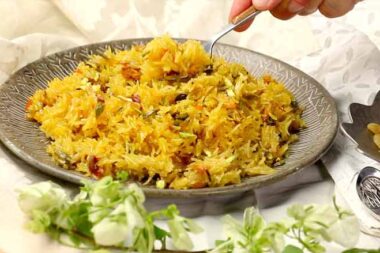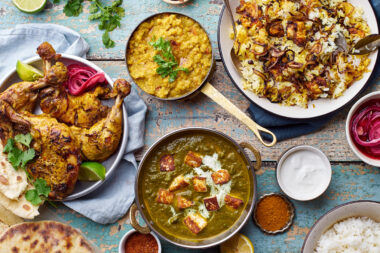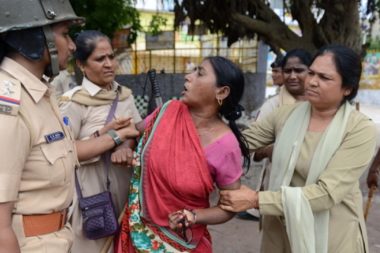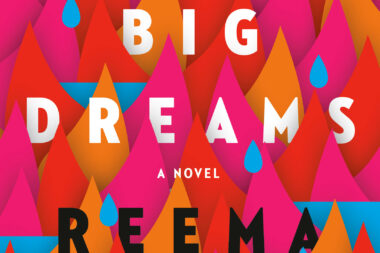Written by S. Shiva (Sri Lanka Reporter)
Dowry is a word that stands to encompass money, property, jewelry, or other gifts of value granted by the parental family of a bride to the groom or the groom’s family. It is important to note that when this same exchange of valuables occurs the other way around, from the groom’s family to the bride’s family, it is called Brideprice or Bridewealth.
What are the historical origins of the ‘Dowry’ tradition?
One of the earliest historical records that speak of the Dowry System, is the Code of Hammurabi of ancient Babylon, dating back from the 18th century BC. Interestingly, this code engraved on a stone states that the Dowry System was already well established at that time. This would indicate that the history of the dowry system has an even more ancient root, though the historical records of when this tradition initially began has been lost to the mists of time.
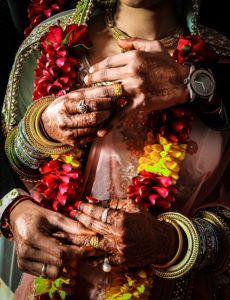 That said, records of the dowry and brideprice traditions can be found throughout the centuries in many cultures; including those of ancient Greece, the Roman Empire, the Indian Sub-continent, China, Europe, England, Russia, the Americas and others. While some of these cultures considered jewels, money and gold the most valuable items of dowry, others valued livestock, linen, horses, clothing and other such objects more.
That said, records of the dowry and brideprice traditions can be found throughout the centuries in many cultures; including those of ancient Greece, the Roman Empire, the Indian Sub-continent, China, Europe, England, Russia, the Americas and others. While some of these cultures considered jewels, money and gold the most valuable items of dowry, others valued livestock, linen, horses, clothing and other such objects more.
In some of these ancient cultures, dowry was an essential burden; while in others a rich dowry was a way of proclaiming affluence. Specifically, in the Indian tradition of olden days, only the members of higher castes were allowed to exchange a dowry, while the lower castes were only allowed to exchange a brideprice. This often resulted in young boys from poor lower caste families being unable to afford a bride. In some other ancient cultures the wedding tradition was to have a two-way exchange of both a dowry and brideprice.
 The dowry tradition initially arose in countries with patriarchal societies. In such countries, women were not expected, or sometimes completely not allowed, to take the lead in the family with regards to earning income or property ownership. Therefore, the parents tended to gift land and valuables to the new grooms so as to cover the costs of taking care of the daughter and/or to share the costs of setting up a home. As the centuries went by, it resulted in women having lesser rights and being treated more as cash cows by the families of the grooms, while many parents tended to have the discriminatory opinion that sons were a profit to the family and daughters were a loss. The brides who were not able to meet the expectations of the groom’s family either had the engagement broken or were ill-treated once they entered the family.
The dowry tradition initially arose in countries with patriarchal societies. In such countries, women were not expected, or sometimes completely not allowed, to take the lead in the family with regards to earning income or property ownership. Therefore, the parents tended to gift land and valuables to the new grooms so as to cover the costs of taking care of the daughter and/or to share the costs of setting up a home. As the centuries went by, it resulted in women having lesser rights and being treated more as cash cows by the families of the grooms, while many parents tended to have the discriminatory opinion that sons were a profit to the family and daughters were a loss. The brides who were not able to meet the expectations of the groom’s family either had the engagement broken or were ill-treated once they entered the family.
Once a method for parents to show their love for their child and the value she brings to the family, the tradition of dowry was slowly twisted into its current form of cruelty where the life of the brides depend on the money that they bring with them.
The Current Situation with the Dowry Tradition
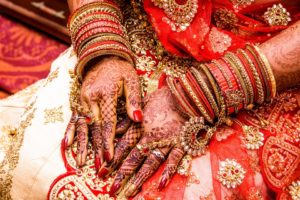 With the rise of the gender equality concept in modern society, many women have started being the partial or even the main income earners of families. Hence, they started speaking out for their rights so as to not be treated as commodities. As a result, many modern cultures have given up on the tradition. That said, those that still cling to the withered and twisted roots of this tradition take their obsession for money to the extremes of cruelty. In South Asian countries such as India, Sri Lanka, Nepal, Bangladesh and Pakistan; or in Middle Eastern countries such as Afghanistan, Iran and Turkey; the tradition of dowry still strongly continues to rule certain ethnic groups.
With the rise of the gender equality concept in modern society, many women have started being the partial or even the main income earners of families. Hence, they started speaking out for their rights so as to not be treated as commodities. As a result, many modern cultures have given up on the tradition. That said, those that still cling to the withered and twisted roots of this tradition take their obsession for money to the extremes of cruelty. In South Asian countries such as India, Sri Lanka, Nepal, Bangladesh and Pakistan; or in Middle Eastern countries such as Afghanistan, Iran and Turkey; the tradition of dowry still strongly continues to rule certain ethnic groups.
In India, though the Dowry Prohibition Act of 1961 and the Penal Code strictly prohibit the exchange of dowry due to many crimes resulting from it, it is still a very common illegal practice. The practice has resulted in the physical and mental torture, or even murder, of many young brides by the mother-in-laws and the rest of the groom’s family.
A few conversations…
 While speaking to some members from the Sinhalese, Hindu, and Muslim ethnicities in Sri Lanka; a difference was evident that there were differences among the dowry traditions followed even in the same country. According a young married Sinhalese lady, the tradition of dowry is slowly disappearing from their culture with many couples getting married through a romantic match instead of a proposal arranged by the parents. Only extremely rich families are continuing this tradition in their culture, mainly to show their wealth, while even then it is not considered essential.
While speaking to some members from the Sinhalese, Hindu, and Muslim ethnicities in Sri Lanka; a difference was evident that there were differences among the dowry traditions followed even in the same country. According a young married Sinhalese lady, the tradition of dowry is slowly disappearing from their culture with many couples getting married through a romantic match instead of a proposal arranged by the parents. Only extremely rich families are continuing this tradition in their culture, mainly to show their wealth, while even then it is not considered essential.
On speaking to some young girls and mothers from the Hindu culture; it was obvious that the dowry system on their end was not so lax. A number of young women said that their parents made it a point to have a lot of assets ready as they may not be able to successfully find a groom otherwise. The dowries expected by ‘foreign’ grooms (men from families who had migrated to the Western part of the world) was several times that of local grooms – regardless of their professions and backgrounds.
 An old Hindu mother reminisced about the difficulties faced by her sister during their younger days a few decades ago. “The groom’s family had asked for a diamond earring as part of the dowry, but our father who retired could not afford it and we asked to negotiate”, she said. “The marriage broker told us that the negotiations were successful and the marriage was arranged. The cards were printed and it was the night before the wedding day. My sister’s mother-in-law then came screaming because she heard from the bridal dresser that the diamond earring was not being included in the dowry. Turned out that the two-timing broker had told them one thing, while telling us something else so as to get the match done. The woman used many humiliating words and then was dead set on immediately stopping the marriage and breaking the engagement. It was only because my brother -in-law managed to persuade her that she was calmed down and the marriage happened. Even then, she was very cruel to my sister”, said the lady. She stated that it saddened her to see that the situation has not really changed much even now, decades after the incident.
An old Hindu mother reminisced about the difficulties faced by her sister during their younger days a few decades ago. “The groom’s family had asked for a diamond earring as part of the dowry, but our father who retired could not afford it and we asked to negotiate”, she said. “The marriage broker told us that the negotiations were successful and the marriage was arranged. The cards were printed and it was the night before the wedding day. My sister’s mother-in-law then came screaming because she heard from the bridal dresser that the diamond earring was not being included in the dowry. Turned out that the two-timing broker had told them one thing, while telling us something else so as to get the match done. The woman used many humiliating words and then was dead set on immediately stopping the marriage and breaking the engagement. It was only because my brother -in-law managed to persuade her that she was calmed down and the marriage happened. Even then, she was very cruel to my sister”, said the lady. She stated that it saddened her to see that the situation has not really changed much even now, decades after the incident.
A similar situation was evident in the Muslim societies of the country as well, though to a slightly lesser extent. “We consulted with a marriage broker, and the first question he asked was what gift we planned to give for the bride. The man gave a very sneaky smile and followed up with, after all she’s your precious daughter, so I believe you will ‘value’ her very very much”, said a Muslim father. He went on to say that he gave up on the effort after seeing that, because though he was able to give a good dowry, he did not want to sell his child. So they decided to let their daughter choose a partner as she wished through a romantic match.
According to the interviewees, in Sri Lanka, the expected monetary dowries alone were exorbitant amounts ranging anywhere between tens of thousands of US dollars to millions of US dollars. This was in addition to properties in good locations and expensive gold and diamond jewelry. For a country where the average annual income per person is around USD 12,000 or even lesser, this is a huge sum and is often the life savings of the families. Paying these dowries leave them bankrupt and in debt.
What are the Key Points For and Against the Dowry Tradition?
- It helps a new couple settle in a new home and life
- It can be a way of sharing expenses for a young house wife who does not earn an income
- It can be a huge help for the many expenses that the young couple has to face when growing their family.
- It can help cover the disadvantage that a not so attractive young bride may face
- As many of the cultures that use a dowry system have the bride move into the groom’s family, bringing her own property and financial value can give more independence for the bride and allow her a say in the decisions made groom’s family.
- Many traditional patriarchal societies only allow the male children (sons) to inherit property and assets from parents. The dowry system allows the female children in such societies to also receive their share of the parental inheritances.
- The dowry system allows women to be used as commodities for trade
- It causes some parents to discriminate against female children, as they consider them a financial loss to the family (to the extent that some even abort female children in the womb).
- Brides from poor families are judged for their family situation and are unable to get partners.
- The Dowry tradition allows some grooms and families to blackmail the bride’s family for more valuables by threatening to end the engagement at the last moment
- As the bride is often sent to the groom’s family after marriage, if the dowry expectations are not met, even if the marriage goes through, the bride often has to look forward to a life of hell – filled with abuse, humiliation, isolation and may even lead to the murder or suicide of the girl.
- Even when the bride’s family is very well off, and able to afford the dowry, if the groom comes from a lesser affluent family and is chosen mainly for his educational/career background, the giving of the dowry can result in a situation of inequality among the new couple – where the bride has all the power and the groom is a mere puppet to the bride’s family.
What about you? Do you argue For or Against using Dowry in marriages in this modern society? Do you have any memorable personal experiences with the dowry tradition?
Share this article on social media and let the world know!






